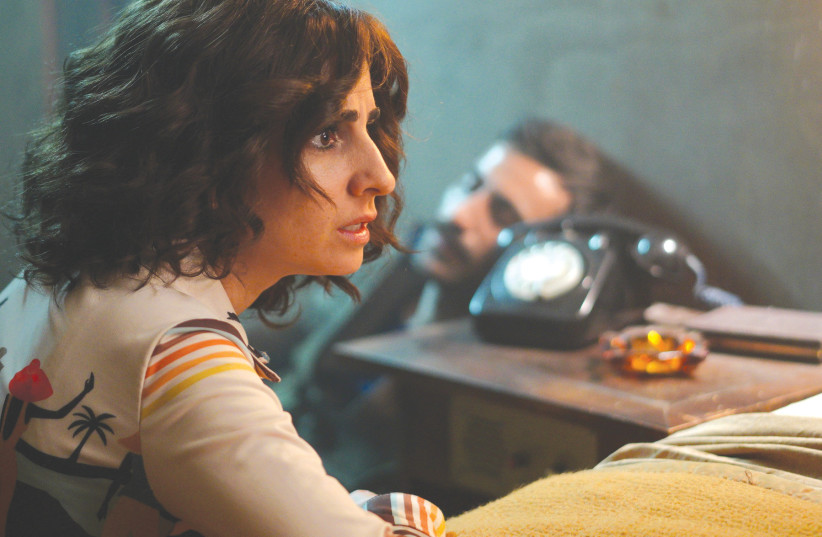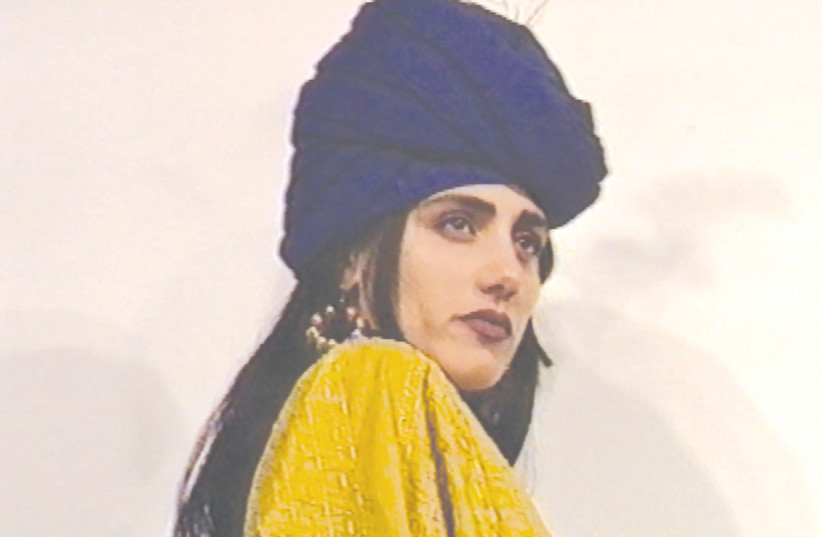The 39th Jerusalem Film Festival, which opens on Thursday and runs until July 31 at the Jerusalem Cinematheque and other venues around the city, has always been known for its strong documentary offerings, and this year is no exception.
The Diamond Competition for Israeli Documentary Films is particularly competitive this year, with movies that look at diverse aspects of life in Israel and Jewish history.
Savoy, directed by Zohar Wagner and produced by (among others) KAN, is an intense and suspenseful film with a docudrama feel to it. It tells the story of a now mostly forgotten hostage siege, at the Savoy Hotel in Tel Aviv in 1975.
Those were the days of hostage-taking around the world, with various groups using this terrorist technique to thrust their causes into the news media.
The Palestinians were one of many factions around the world using this as a tactic, but the story Savoy tells is notable for several reasons.

These Palestinian terrorists, who managed to enter Israel via a boat, pretty much bumbled the siege from beginning to end. Originally, they had planned to attack some high-profile targets, but in those pre-Internet days, they apparently could not find their way around Tel Aviv and ended up at a shabby hotel near the beach (which has since been renovated and is now quite chic), shooting their way in and taking the guests and staff hostage.
Among the guests was Kochava Levi, an unhappily married wife and mother, who was at the hotel with her lover, while her husband cared for their daughter at their home not far away. A young woman of Yemenite descent who left a tough neighborhood to live on a kibbutz as a teenager but never felt that she fit in there, she had literary aspirations and recorded her thoughts in poetic language in a journal.
Much of the film is narrated by Levi, in passages taken from her journal, read by Ophir Award-winning actress Dana Ivgy, who portrays Levy in reenactments.
When her tryst is cut short, she is terrified both of being killed and of having her husband and the world find out why she was at the hotel.
The fact that she is fluent both in Hebrew and Arabic is significant, and she becomes a go-between, mediating between the soldiers and police outside and increasingly desperate terrorists inside. Ala Dakka (Fauda) plays a terrorist with whom she develops a strange bond, thinking they are both about to die within a few hours.
We have heard a great deal about the hostage siege at Entebbe and other incidents where Israel was able to pull off dramatic rescues, but understandably, less is said about the times when many hostages were lost, as was the case at the Savoy.
The movie is especially good at portraying the chaos and fear that Kochava and the other hostages lived through that night. The movie mixes reenactments, using news footage and audio recordings that were made, improbably, by a young man who sneaked in to document the action. The film also captures the upsetting aftermath of the story, where some hailed Levi as a heroine, while at other times she was described in the press as a prostitute, and tried to defend her reputation.
Je t’aime Ronit Elkabetz
MORAN IFERGAN’S Je t’aime Ronit Elkabetz highlights Ronit Elkabetz’s fashionista side.
Elkabetz, the great Israeli actress, who was one of the key figures who made Israeli cinema great, and who tragically died young six years ago, often played unglamorous women on-screen, but off-screen, she was a great beauty who wore designer clothes, as well as her own designs, and brought a much-needed infusion of glamour and personality to the sometimes dreary Israeli film industry.

I saw her at many events, and she had a kind of luminous beauty and larger-than-life presence that her clothing accentuated. When she was in a room, you couldn’t take your eyes off her, no matter how many other actresses were around, and her often over-the-top clothes were part of that. I didn’t know, until I saw this film, that she made many of her own outfits.
Her brother and collaborator, Shlomi Elkabetz, produced this film, and it is an enjoyable complement to his love poem of a movie he made for his sister, Black Notebooks. Je t’aime Ronit Elkabetz will be shown at a special screening, out of competition.
The Partisan with the Leica Camera.
F. SCOTT FITZGERALD wrote, “Show me a hero and I’ll write you a tragedy,” and this quote was brought to mind by Ruth Walk’s documentary The Partisan with the Leica Camera.
It tells the story of Mundek Lukawiecki, an avid photographer, and his wife, Hannah Bern, two Jews who fought with the Polish partisans in forests during World War II, then settled in Israel after the war.
This fascinating and unusual story is told through excerpts from Lukawiecki’s testimony to a Yad Vashem researcher as well as interviews with the couple’s son, neighbors and a fellow partisan, as well as through dozens of beautifully composed photographs Lukawiecki managed to take in the forest.
Their son and neighbors remember Lukawiecki, who ran a small photo shop and photographed weddings and other events to make a living in Israel, as a dictatorial man, one who beat his sons often for minor infractions, while their mother functioned but was withdrawn and cold.
In Lukawiecki’s testimony, he recalls how he was tasked with killing Nazis and collaborators during the war and was more than up to the task, and that his wife often took part.
His testimony also reveals that she was raped in the ghetto by a Ukrainian official – which made her father beg Lukawiecki to take her with him to the partisans – and later, she was sexually assaulted by their partisan colleagues when her husband was off on a mission, which makes her story all the more heartbreaking.
The film tells its memorable story gracefully, contrasting their years in the forests and heroism with the difficulty they had living their lives after the war.
Many more films to see
OTHER FILMS in the Diamond Competition include Iris Zaki’s Egypt, a Love Song, an account of an intimate journey she took with her father, exploring the extraordinary story of her legendary Egyptian singer grandmother.
Bilal Yusef’s Living in the Shadow of Death looks at how one man is coping with the wave of gun and gang violence in Israeli-Arab towns throughout the country, and how he tries to figure out a way to keep his family safe.
Assaf Banitt’s The Soldier’s Opinion looks at what military censors discovered were the issues that most concerned soldiers, when they copied soldiers’ letters.
Artyom Dubitski’s To Cure Longing is about a trip he took to Russia to meet the grandmother he had never known, which opened a window on his family’s complex past and a way to move forward.
David Wachsmann’s Two Kids a Day looks at the fact that, on average, two Palestinian minors are arrested every day by Israeli forces, often for rock-throwing, and examines how their cases are handled, how they could be handled better, and whether these arrests actually deter the minors from more violent acts, or whether being put into the system, as it is run now, actually makes them more inclined to be violent.
In parallel to the festival, the Jerusalem Sam Spiegel International Film Lab will have a pitching event on July 22 at Mishkenot Sha’ananim, in which participants will pitch their projects to an Israeli and international jury, and the winners will be announced later in the week. David Bernad, a producer of the acclaimed HBO series The White Lotus, and Arvand Khosravi, head of international television content for Endeavor Content, which produced such series as The Night Manager, will attend the festival’s Industry Days events as guests of the first Jerusalem Sam Spiegel Series Lab, which will be meeting during the week.
